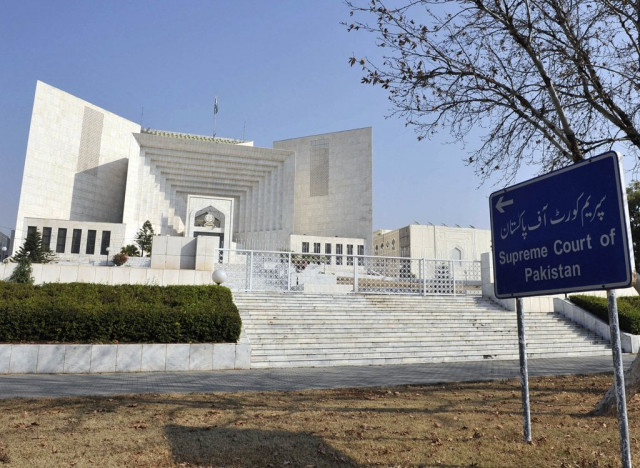Imran’s plea against NAB law tweaks allowed
Justice Ahsan observes petition that was rejected by registrar’s office fulfills requirements of Article 184 (3)

A Supreme Court judge has observed that PTI Chairman Imran Khan's petition against the recent amendments to the National Accountability Ordinance (NAO) 1999 fulfilled the requirements of Article 184 (3) of the Constitution as it raised questions of public importance.
The apex court registrar’s office on its objections had stated that the petitioner had not highlighted what matters of public importance were involved in the enforcement of fundamental rights guaranteed under the Constitution so as to directly invoke the jurisdiction of the Supreme Court under Article 184 (3).
“I am of the view that the petition prima facie fulfills the requirements of Article 184 (3) of the Constitution as the same raises questions of public importance with reference to enforcement of fundamental rights conferred by chapter I, part II of Constitution,” read a six-page written order issued by SC judge Justice Ijaz ul Ahsan while overruling the registrar office’s objections on Imran petition against the recent changes in the National Accountability Bureau (NAB) law.
Justice Ahsan heard the appeal in his chamber. Lawyer Khawaja Haris appeared on behalf of the deposed premier.
The order read that the appeal was allowed and the office objections were overruled subject to all just and legal exceptions.
"The [registrar] office is directed to number the constitution petition and fix the same for hearing before an appropriate bench of this court after obtaining necessary orders from the chief justice of Pakistan", it added.
The order also read that prima facie, it appeared that the basic ingredients of entertaining a petition under Article 184 (3) of constitution were met.
"I find myself in agreement with the argument of learned counsel for the appellant that if all the questions of maintainability of the petition are raised,the jurisdiction lies with the court to rule on the same.”
The order narrated all arguments given by Haris.
Read SC sets aside registrar's objections on Imran's NAB law plea
The counsel said the questions raised in the petition were not only of great public importance but involved fundamental rights of the people throughout Pakistan and grievances therein applied to holders of public office both at the Centre and the provinces including ministers, members of the cabinet and the prime minister of Pakistan as well as their close associates.
“Therefore this court is [the] most appropriate forum for the purpose of adjudication upon legal propositions raised therein.”
The counsel also referred to the SC judgment in the NRO case to justify his contentions.
Currently, four seats of judges are vacant in the apex court. Several judges are not sitting on the bench during this week.
However, PTI lawyers are expecting that the petition will be fixed in the next week.
Senior lawyers believe that the composition of the bench will be significant in this case.
In the petition, the former premier named the Federation of Pakistan through its Law and Justice Division secretary and the NAB through its chairman as respondents in the case.
“The court may very graciously be pleased to declare that amendments made by National Accountability Act 2002 in so far as they substitute section[s] 1(2), 2, 4, 5 (c) (e) (q) and (s), 6 (in so far as it empowers the government in place of the president as the appointing authority for the NAB chairman), Section 9 (a) (v), (vi), (ix), Section 10 (d), Section 18, proviso to sub section b of Section 25 and proviso in Section 26 and further substitute the word ‘National Assembly and the Senate' in place of president in section 23D and so far they omit Section 14, sub section b in the proviso to sub section (a) of Section 15, Clause (g) of Section 21 and Section 23 are ultra vires of the Constitution of Islamic Republic of Pakistan and violative of the fundamental rights of people of Pakistan as gauranteed by Article 9,14, 19A, 24 and 25 of [the] Constitution and direct that accordingly these amendments be struck off from statute books,” the petition read.
The petition contended that most of the amendments were “person-specific” therefore NAB should be asked to provide details of all such cases which were related to prominent and influential holders of public office, especially about the cases pertaining to offences of owning assets beyond known sources of income and misuse of authority.


















COMMENTS
Comments are moderated and generally will be posted if they are on-topic and not abusive.
For more information, please see our Comments FAQ